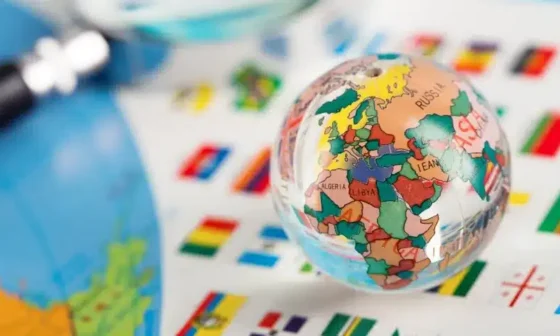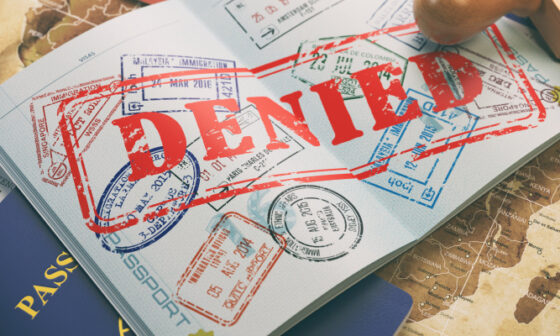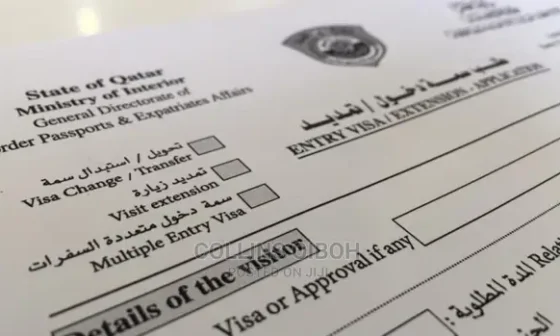What if you can turn your aspiration of living in the US into reality with a green card? Or you have been considering moving to the United States and wondered what it takes to get a green card as a Nigerian. As a Nigerian aspiring to live in America, understanding the green card is very crucial for your immigration process. I have had the privilege to work with quite some people in your situation and eventually get their immigration process right through me, and you won’t be an exception. In this article, I will buttress what a green card represents, the types of green cards, the cost of obtaining a green card, and how to obtain a green card.
What Is a Green Card?
A green card, also known as the permanent resident card, is a document issued by the U.S. government that allows individuals to live and work in the US indefinitely. Anyone who has a green card has a greater chance of getting US citizenship after a specific time, which is usually 3-5 years. A green card offers permanent residency, working rights, and travel in and out of the U.S. without immigration restrictions. The green card application is decided by USCIS (United States Citizenship and Immigration Services), but in some cases, an immigration judge or member of the Board of Immigration Appeals acting on behalf of the U.S. attorney general can grant permanent residency in the course of removal proceedings.
Key Points
- A green card allows individuals to live and work in the U.S. permanently and provides a path to citizenship after 3-5 years.
- Common types of green cards include family-based, employment-based, humanitarian, diversity lottery, and long-time resident green cards, each requiring specific eligibility and documentation.
- Nigerian applicants must collect relevant documents, have a sponsor file an immigrant petition, and may need to attend an interview, with the process typically taking one to two years.
Types of Green Cards
There are many categories of green cards. The most common types of green cards include
#1. Family-Based Green Card
This type of green card is made for only close relatives, such as spouses, brothers, sisters, fathers, and mothers. Uncles, cousins, nephews, and nieces are not eligible because they are not closely related family members. Also included in this category are widows and widowers who were married to a U.S. citizen at the time the citizen died but in this case, the widow or widower must provide evidence of their marriage in order to receive a green card. Extended families can only apply for family-based visas if they have a close relative who is a US citizen or a current green card holder. I have had a client of mine who sponsored her husband, who at that time lived in Nigeria.
They submitted the necessary paperwork, including proof of their marriage and financial documents. After several months, the husband received his green card and moved to the U.S. Eligibility for a family-based green card includes
- Abused spouse, parent, or child under 21.
- A widower.
- Brother or sister who is at least 21.
- Married son or daughter.
- Unmarried child under 21.
- A spouse or civil partner.
- A fiance (e) or child of the fiance (e).
#2. Employment-Based Green Card
Many categories of workers can apply for permanent residency within the employment-based green card category. Depending on the type of work, your spouses or children may be eligible for a green card. The subcategories under Employment-Based Green Card include:
- Priority workers (EB-1) are mostly seen in positions in the arts, sciences, education, business, and athletics that require extraordinary ability.
- Professionals with advanced degrees and exceptional abilities (EB-2) in positions requiring at least a master’s degree or baccalaureate, also known as a bachelor’s degree.
- Physicians (EB-2) who agree to work full-time in underserved areas for a specific period and meet other eligibility criteria.
- Skilled workers in positions that require a minimum of two years of training or experience that are not seasonal, unskilled workers in positions that require less than two years of training and professional workers that require at least a bachelor’s degree from a U.S. school.
- Special workers (EB 4), which includes media professionals, religious workers, and ministers.
- Investors (EB 5) who are non-US nationals who have invested or are investing at least 1,435,000,000 naira in a new U.S. business that creates full-time positions for at least 10 workers.
#3. Humanitarian Green Cards
Humanitarian green cards are available for refugees, asylees, victims of human trafficking (T visa) and victims of crime (U visa). Asylees are people who run away from their country due to fear of prosecution due to race, religion, nationality, political opinion, or membership in a particular group. Once they have physically stayed in the U.S. for one year after receiving refugee or asylee status, they may then apply for permanent residency. The families of those involved may also seek protection from the U.S. and eventually apply for a green card.
Victims of human trafficking who are living within the U.S. may also apply for a T visa to stay in the United States for four years under the condition that they must accept to help investigate and prosecute perpetrators of human trafficking. To qualify for permanent residency, the applicant must have physically stayed in the U.S. for at least three years after receiving a T visa. They must also meet other requirements, such as demonstrating good character from the time they received a T visa.
#4. DiversityVisa Lottery Green Cards
Diversity lottery green cards are also known as green card lottery. It is randomly given to a selection of people who apply for entry into the United States from 6 geographic regions, such as Africa, Asia, and Oceania. Only people from countries that have had little immigration to the United States in the past, such as Algeria, may enter the lottery. The Diversity Lottery Green Card is an annual programme that provides 50, 000 green cards. I have a friend who was a teacher before he left Nigeria. He applied for the Diversity Lottery green card and luckily, he was chosen along with 49,999 other individuals from other countries. He was awarded a green card and he relocated to the United States to pursue a greener pasture.
#5. Long-time Resident Green Card
You can apply for a long-time resident green card if you have physically stayed in the United States, whether lawfully or unlawfully, since January 1, 1972. This type of application is done through a special process called the registry.
Advertisements
To be eligible for a long-term resident green card, an individual must meet all the following criteria:
- They have been in the United States since January 1, 1972, which they need to prove by providing a 1-94 travel record.
- They have not left the United States since arriving.
- They have not committed certain types of crimes, such as fraud, prostitution, or murder.
- They are eligible for United States citizenship through naturalisation.
- They have not committed crimes such as drug abuse, smuggling, or marriage fraud, such as marrying a United States citizen because of a green card, that will make them deportable.
- They have never been involved in any violation that would make them inadmissible, meaning they can’t receive a green card.
What Document Do I Need to Apply for a US Green Card as a Nigerian?
With many types of green cards available for Nigerians, each applicant will have different requirements to fulfil when they apply for the green card. In general, if you want to be a green card owner in Nigeria, you should have the following documents:
- A completed green card application form:
- form 1-485
- Form Ds-260 if you are applying from abroad
- Two recent passport photos
- Your current passport or travel document
- A birth certificate. If it is not available, you must provide a document explaining why it is not available.
- Proof of your petitioner’s legal status in the US.
- Bank details and proof of income.
- Police clearance certificate.
- Any military record ( if applicable).
- Record of previous employment (if applicable).
- Any court, police, or prison records.
- Tertiary education record ( if applicable).
- An immigration petition form specific to the applicant’s circumstances usually requires a sponsor who files the petition on behalf of the applicant. This sponsor will be required to follow a lengthy process for the application as well.
- Attend an interview.
How Much Does It Cost to Apply for a Green Card?
The following are fees to be paid when applying for a green card:
- The main application form is Form I-485. The application to register for permanent residence or adjust status has a fee of 1,413,475 naira ($985). This needs to be paid upfront and before any further steps are taken in the process.
- Next, the application fee must be paid by the petitioner. The fees are as follows:
- Family or marriage application: 767,725 naira ($535).
- Employment application: 1,004,500 naira ($700).
- Diversity visa: 473,550 ($330).
- After the visa has been processed, the applicant will then proceed to continue the application themselves at the US Embassy in their country. The applicant pays for this. This fee ranges between 172,200 naira ($120) and 466,375 naira (325), depending on the type of visa applied for.
- The diversity visa is a once-off payment of 473,550 naira ($330) to get entered into the draw. Winners and their immediate family members will not need to pay any additional fees.
Once your visa is approved, you will be asked to pay an additional 315,700 naira ($220) to the USCIS for administrative costs.
How to Apply for US Green Card as a Nigerian
The first thing to keep in mind is that it takes a long process to apply for a green card, and the steps to be taken depend on the route you are taking, which is based on the type of green card you are applying for. As a Nigerian applying from Nigeria or any other country outside the United States, you will need to apply through the U.S. consulate in the country and follow the application process.
In general, you will need to:
Advertisements
- Find out if you are eligible or not.
- Collect all the relevant documents necessary for your application route.
- Have a sponsor that will file an immigrant petition for you. This can be a family member or an employer. In some cases, you are allowed to file for yourself
- Once USCIS has approved the immigration petition, you will need to confirm that there is an available visa in the relevant category you are applying for and will need to file a green card application with USCIS or a visa application with the U.S. Department of State.
- Pay all of the fees involved
- Wait to hear back from the USCIS and schedule an interview.
- Attend biometrics appointments to provide photos.
| Step | Description | Duration |
|---|---|---|
| Determine Eligibility | Verify eligibility for a green card based on family, employment, or other criteria. | Variable |
| Collect Documents | Gather necessary documents (birth certificate, passport, photos, etc.). | 1-2 months |
| File Petition | Sponsor files an immigrant petition (Form I-130, I-140, etc.). | 6-12 months |
| USCIS Review | USCIS reviews the petition and sends approval or denial. | 6-12 months |
| Visa Availability | Check for available visa numbers (for non-immediate relatives). | Varies |
| Submit Green Card Application | File Form I-485 (if in the U.S.) or DS-260 (if abroad). | 1-2 months |
| Attend Biometrics Appointment | Provide fingerprints and photos. | 1-2 months |
| Interview and Decision | Attend interview and receive a decision. | 6-12 months |
| Receive Green Card | USCIS issues the green card if approved. | 1-2 months |
Can You Be Eligible but Still Denied?
You should know that not everyone who applies for a green card is granted one. Even if you are eligible, there are many reasons why your request can be denied. Some of the reasons are very simple, maybe something like submitting the wrong forms or submitting them outside of the deadline. A few of these reasons are as follows:
- Basic ineligibilities may include missing deadlines, failing to attend interviews, missing documents, and failing to meet application requirements.
- Certain crimes, such as terrorist behaviour, money laundering, and the illegal export of goods, can make you ineligible for a green card.
- If you have a disease that is dangerous to the public or you have failed to get updated with all of your vaccinations, you could be denied.
- You can be denied for economic reasons. Those who would require government assistance to survive in the US may be denied entry. Applicants need to provide bank papers with levels of income and show that they can support themselves or have a family member who provides financial support.
What Are You Entitled to as a Green Card Holder?
As a U.S. green cardholder, you are entitled to many benefits in the United States. Some of these benefits include:
- Join political campaigns
- Own property, vehicles, and firearms
- Start your own business
- Entitled to social security benefits after retirement.
- Able to apply for and work at any company that is based in the U.S.
- Sponsor a green card for members of your family.
- Able to enter and leave the country without the risk of being denied or having to produce any additional visas.
Please note that, as a green card holder, you are also required to:
- Live and work under US laws.
- Support the US government.
- File your taxes and report your yearly income.
How Long Does It Take to Apply for a United States Green Card?
It is actually a lengthy process to apply for a United States green card. I have always told my clients not to expect a response to their application for at least one year, although I have had lots of clients that have to wait for at least two years.
#1. Application Within the U.S
The average waiting time, if you are applying within the U.S., is usually 1-2 years. If you are applying for a family-based green card, parents and minor children can get a response faster than siblings and older children.
#2. Application From Abroad
The wait time when applying for a green card from abroad varies and most times it depends on the route you are taking to obtain permanent residency. In general, the applicant will also wait for at least one year before getting a response.
Is Green Card Citizenship?
While most green card holders live and work in the United States, they enjoy most of the benefits as U.S. citizens. Permanent residency is not citizenship; therefore, it has limitations. For example, a green card holder doesn’t have the right to vote.
How Long Does a Green Card Last?
Form I-551 is a photo identification document given to lawful permanent residents as proof of their legal status in the United States. Most green cards are valid for ten years.
What Happens if the Card Expires?
An expired green card doesn’t mean you are no longer a lawful U.S. permanent resident. You keep that status for life unless you commit a crime that makes you deportable.
Conclusion
When you apply for the green card, information about the wait time should be available to you once you have submitted your application. In general, a visa must be available for you before you can apply for a green card. In some categories, visas are always available, while in others, there are a limited number.
Priority dates are given to immigrants waiting in line to get an immigrant visa and determine when the visa becomes available. Remember, for family-based green cards, only immediate relatives of U.S. citizens qualify for a green card. You can go to the USCIS website for more information on the green card process. The eligibility requirements should be looked into before you apply for an immigrant visa. Good luck on your Japa journey!
Related Articles
- Top Tips for Nigerians Applying for a National Interest Waiver
- Is It Safe To Visit Colombia Right Now? Don’t Visit Until You Read These Surprising Safety Tips
- France Visa Application: Avoid These Critical Mistakes or Risk Denial
- TOP MASTER’S DEGREE PROGRAMS TO STUDY ABROAD IN 2024-2025
References
Advertisements






